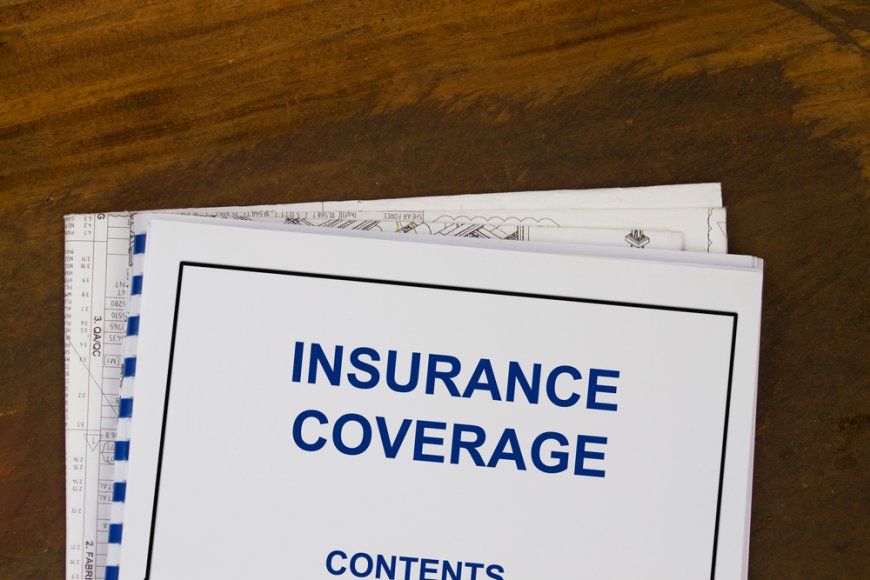The Legal Side of Insurance Coverage Investigations

Insurance coverage investigations are an essential part of the claims process. Whether it's a personal injury claim, property loss, or commercial liability matter, insurers must assess whether a policy covers a particular claim and to what extent. These investigations serve to protect both the insurer and the insured by ensuring that claims are legitimate, accurate, and compliant with policy terms.
However, these investigations are not just procedural; they are rooted deeply in legal principles and constraints. This article explores the legal side of insurance coverage investigations, focusing on the rights and responsibilities of all parties involved, potential pitfalls, and the evolving regulatory landscape.
Understanding Insurance Coverage Investigations
An insurance coverage investigation is initiated when a policyholder files a claim. The insurer is responsible for determining whether the claim is covered under the policy terms. This often involves a review of policy documents, the circumstances of the claim, interviews with claimants and witnesses, examination of physical evidence, and, in many cases, surveillance or background checks.
Unlike fraud investigations, which focus on identifying deceitful activity, coverage investigations are primarily concerned with whether the event in question falls within the scope of coverage agreed upon in the policy. However, the two can intersect, especially when facts are unclear or inconsistent.
Legal Foundations and Framework
1. Duty of Good Faith and Fair Dealing
One of the cornerstones of insurance law is the insurers duty of good faith and fair dealing. This legal doctrine requires insurers to treat policyholders fairly and act reasonably in processing claims. Conducting a prompt, thorough, and unbiased investigation is part of fulfilling this duty. Failure to do so can result in a bad faith claim against the insurer, leading to additional damages far beyond the value of the original claim.
Insurers cannot deny coverage or delay payment unreasonably. Courts have ruled that a rushed or overly aggressive investigation can constitute a breach of this duty, particularly if it seems designed to find reasons to deny coverage rather than discover the truth.
2. Policy Interpretation and Ambiguities
Insurance policies are contracts and are therefore subject to general principles of contract law. Ambiguities in a policy are typically interpreted in favor of the insured, under the doctrine of contra proferentem. This legal concept places the burden of clarity on the insurer, who is the drafter of the policy. As a result, during a coverage investigation, insurers must be careful not to overreach in interpreting policy exclusions or limitations.
Courts often scrutinize how insurers handle ambiguities during investigations. If an insurer relies on a strained interpretation of policy language to deny a claim, it may be exposed to legal challenges.
3. Privacy and Surveillance Laws
Coverage investigations may involve surveillance or review of personal information. These practices must comply with federal and state privacy laws, such as the Fair Credit Reporting Act (FCRA) and applicable wiretap laws.
Insurers often hire third-party investigators to conduct video surveillance, access social media accounts, or perform background checks. Any unauthorized or deceptive surveillance can not only invalidate the findings but also lead to legal liability for the insurer.
Moreover, the use of artificial intelligence or automated decision-making tools in coverage investigations has prompted regulators to scrutinize how data is collected and used. Transparency and consent are increasingly important legal issues.
4. Insureds Duties During Investigation
Most insurance policies include a cooperation clause, which requires the policyholder to cooperate with the insurers investigation. This typically includes providing documents, submitting to interviews or examinations under oath (EUO), and allowing inspections of property.
However, the insurers right to demand cooperation is not unlimited. Courts have held that demands must be reasonable and relevant to the claim. For example, excessive or irrelevant document requests may be seen as harassment or an attempt to avoid paying a valid claim.
When a policyholder refuses to cooperate without a valid reason, it can lead to denial of the claim. Yet, if the insurers demands are unreasonable, courts may side with the insured.
Legal Risks for Insurers
Improper or legally flawed coverage investigations can expose insurers to serious legal risks:
Bad Faith Litigation: If an insurer is found to have acted in bad faith, courts may award punitive damages, legal fees, and interest in addition to the original claim amount.
Violation of Consumer Protection Laws: In many states, unfair claims practices are regulated under consumer protection statutes. Insurers may face regulatory penalties or civil lawsuits for deceptive or abusive investigation practices.
Defamation and Invasion of Privacy: If an investigator makes false statements or improperly discloses personal information, the insurer may be held liable for defamation or invasion of privacy.
Discrimination Claims: Insurers must ensure that coverage investigations are free from bias based on race, gender, age, or disability. Discriminatory practices can trigger lawsuits and regulatory action.
Regulatory Oversight
Insurance companies are heavily regulated at the state level. Most states have enacted laws based on the National Association of Insurance Commissioners (NAIC) model Unfair Claims Settlement Practices Act. These laws mandate fair treatment of claimants and set standards for timely investigation and communication.
State insurance departments have the authority to investigate insurers, audit claim files, and impose fines or sanctions. Regulatory bodies are increasingly focusing on ensuring that coverage investigations are not only efficient but also legally compliant and ethically sound.
Best Practices for Legal Compliance
To minimize legal exposure and ensure compliance during coverage investigations, insurers should follow several best practices:
Document Every Step: Maintain detailed records of all investigative actions, findings, and communications.
Train Claims Adjusters: Ensure all personnel are well-versed in legal requirements, ethical considerations, and company protocols.
Obtain Proper Consent: Secure necessary permissions when collecting private information or conducting surveillance.
Engage Legal Counsel: In complex or high-stakes cases, early involvement of legal counsel can help navigate regulatory and legal challenges.
Review and Update Policies: Regularly review investigative procedures to comply with changes in the law, particularly in technology and data privacy.
The Future of Coverage Investigations
As technology continues to reshape the insurance industry, legal considerations are becoming even more critical. Predictive analytics, AI-driven claims assessments, and automated flagging systems introduce new risks and regulatory scrutiny. While these tools can improve efficiency, they must be implemented with fairness, transparency, and compliance in mind.
Furthermore, evolving societal expectations around privacy, equity, and data use are prompting insurers to rethink their investigative approaches. Legal and ethical considerations are no longer just risk mitigation strategiesthey are integral to building trust with consumers and regulators.
Conclusion
The legal side of insurance coverage investigations is complex and multi-faceted. It involves balancing the insurers need to verify claims with the legal rights and expectations of policyholders. As laws and technologies evolve, insurers must remain vigilant, ensuring their investigative processes are not only effective but also legally defensible and ethically sound. A well-conducted, legally compliant investigation is not just good practice; it is essential to the integrity and sustainability of the insurance industry.




































